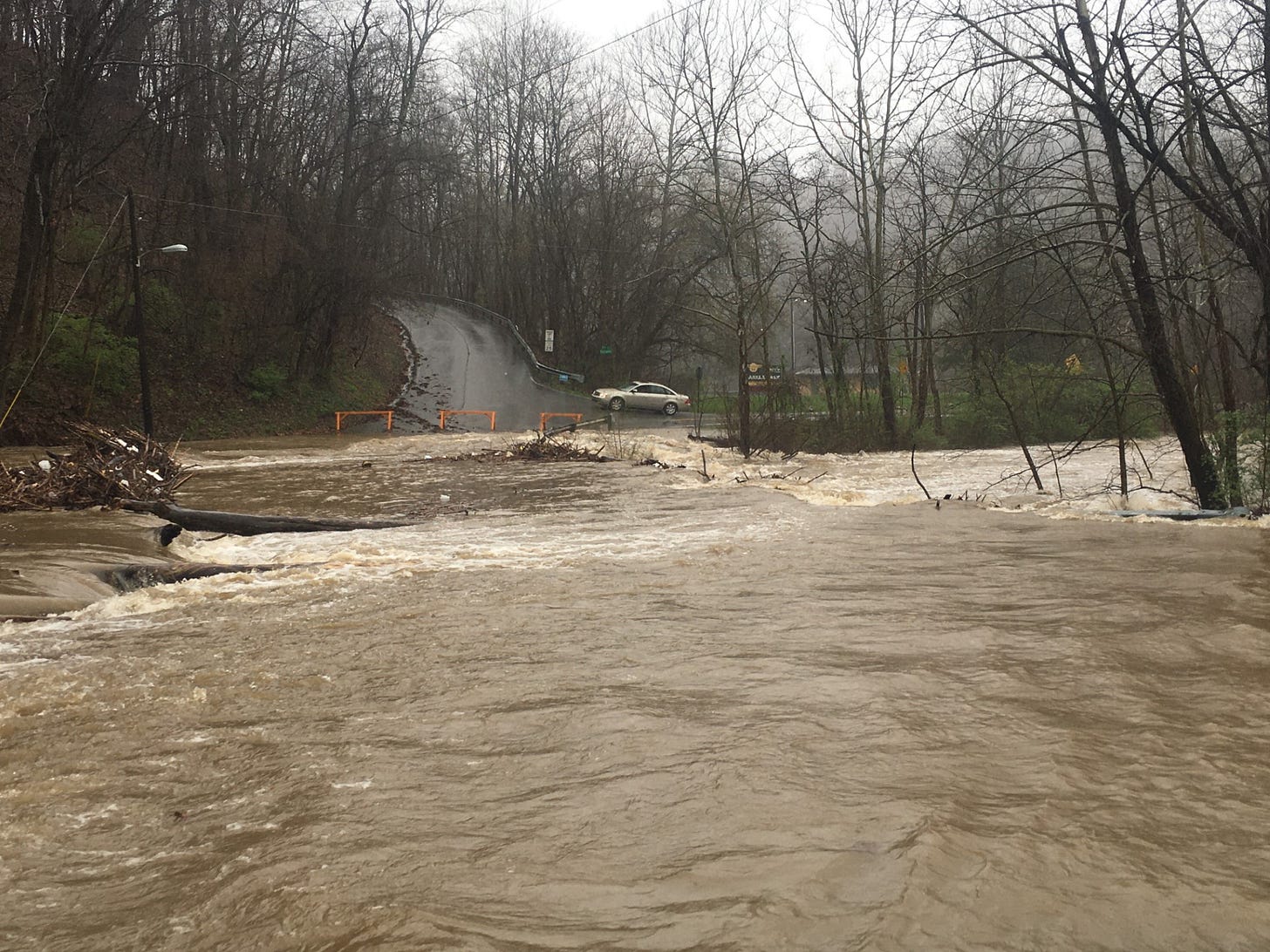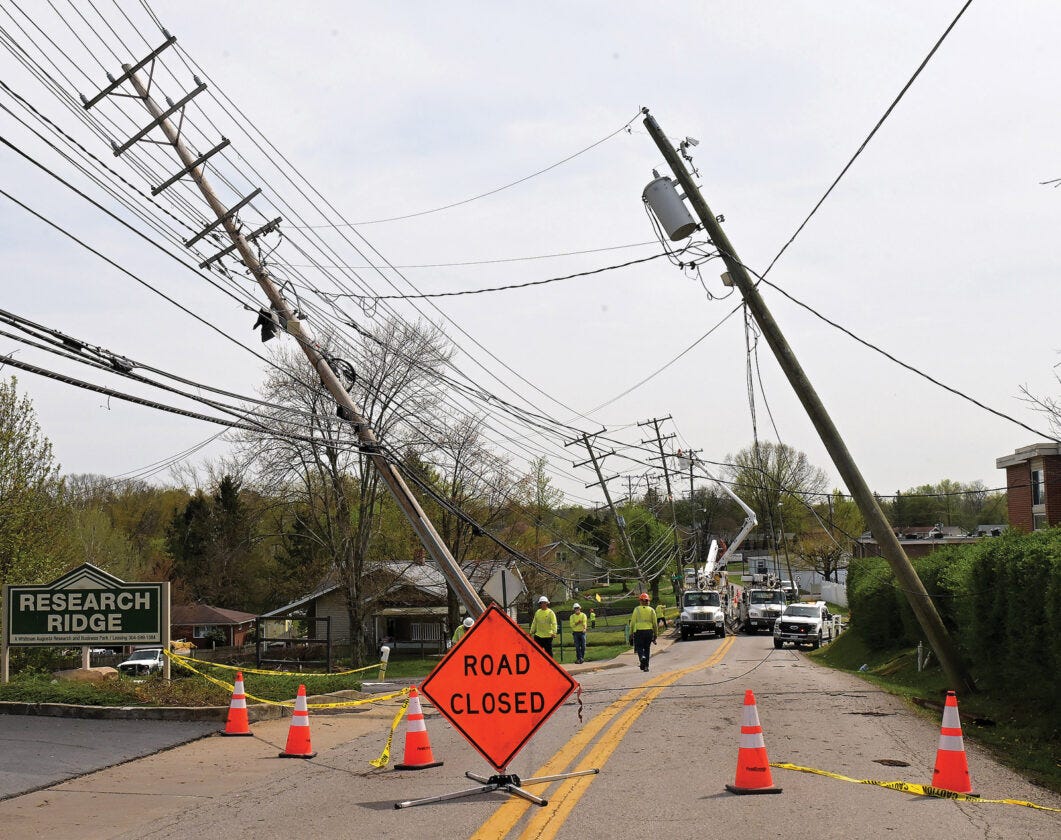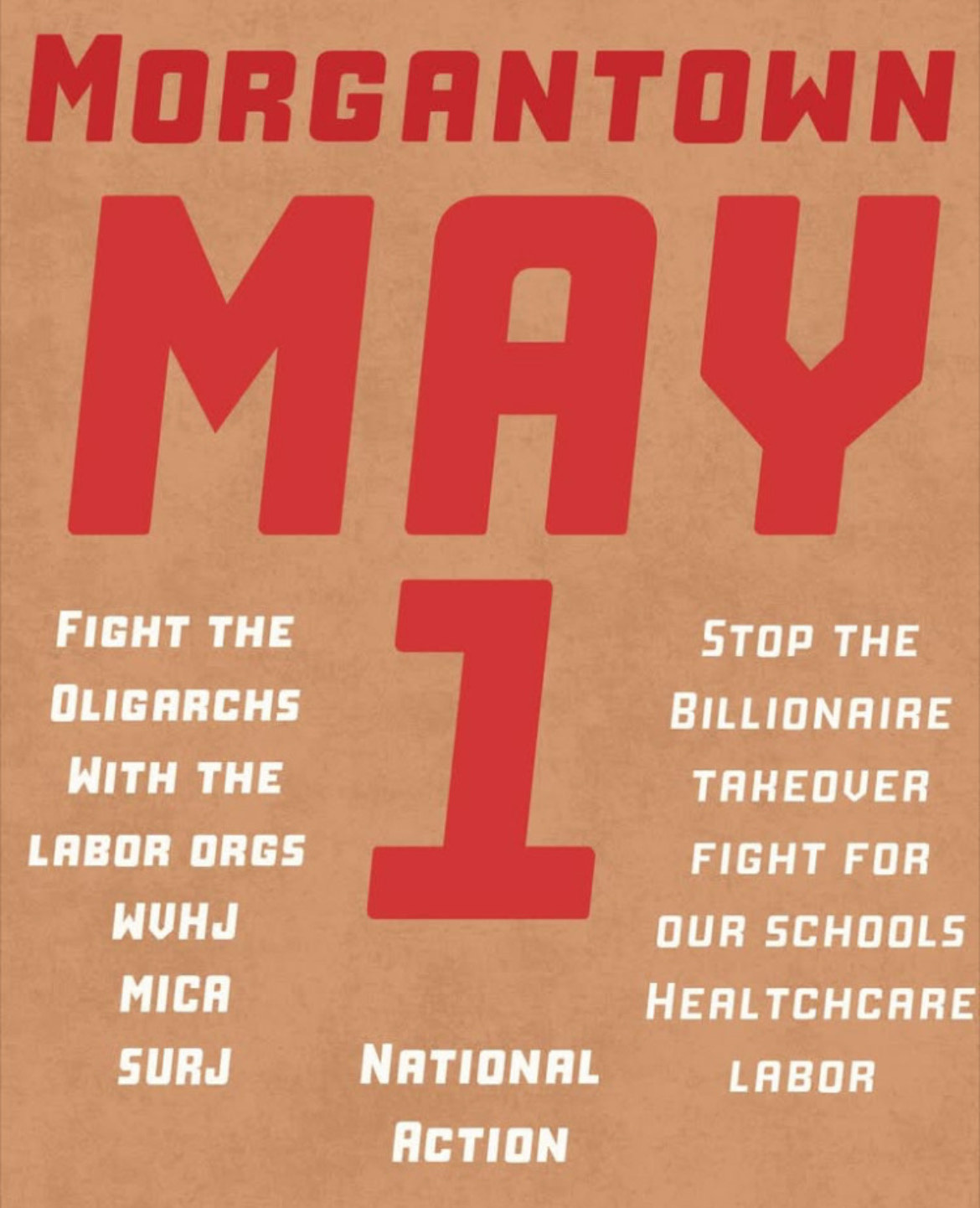Disasters are Waiting to Happen
As climate change threatens our world we must expect our cities to be prepared
Hear y’all, hear y’all!
It’s your “filthy commie” and favorite city councilor, back at the helm to discuss municipal climate resiliency strategies this week.
On Our Minds
Last weekend, we had a horrifying supercell rip through our city in a tight corridor of destruction that left thousands without power for close to a week. Our community faces ever-growing climate threats as soon as springtime rolls around. Amongst the dozens of other things that make one’s anxiety spike, climate change, I am sure, is right up there with the rising tide of fascism.
So what can we do?
Other cities across the nation are already coming up with creative ways to address various climate catastrophes. While emergency planning and preparedness are always necessary, there are also some proactive strategies we can consider implementing that could allow our community to be more resilient to the effects of climate change.
While plenty of cities have carbon emissions controls that can make significant impacts, and Morgantown certainly could try to limit emissions within our various city departments, I think that our eyes are better set on defending against the worst of what climate change is set to deliver—issues like flooding, power outages, soaring power bills—while considering initiatives like green bonds, social impact bonds, and pushing for city facilities to be, at minimum, carbon neutral.
Flooding is and will continue to be a problem for our city, especially on the outskirts of town that aren’t held to the same developmental standards as the core of Morgantown. In conversations with Morgantown Utility Board engineers, it’s painfully obvious that while the standard for flood mitigation has served us well over the years, it is not one that we can rely on for the next two decades. We need to move quickly to adapt and strengthen flood mitigation standards for new developments in the city. Morgantown can pursue social impact bonds to fund infrastructure upgrades to mitigate these costs for private developers and continue to encourage economic development.
Our city is blessed with an amazing tree canopy. We should encourage and incentivize the maintenance of existing and the growth of new vegetative buffers to reduce flooding. Our city has long been committed to protecting our natural beauty, but our strategic planning in multiple city departments should include using vegetative barriers to reduce risk to neighborhoods most at risk of flooding.
While the legislature found it necessary to approve microgrids only for profit-seeking data centers, our cities could use this same technology to build resilience to power outages rather than just allowing data centers to build mini power plants. Erecting municipal solar farms that are connected to smaller, resilient grids could mitigate the kinds of outages we experienced last week. Morgantown could develop power storage infrastructure at municipal facilities for renewables that would allow our city to keep the lights on for essential services when the rest of the city is without power.
As a city, county, and state, we need to move completely towards burying utility lines. Not only are above-ground utility lines unsightly and dangerous, but they are also simply less efficient than underground lines. We shouldn’t have a power outage downtown for an hour during a festival simply because a balloon went the wrong way. We need to work with our county to require underground lines wherever possible. While our terrain makes this difficult at times, it is the case that a majority of our lines could, and should, be buried.
In Our Community
Hey you, ICYMI, there is an election happening tomorrow. Vote YES to repeal the camping ban, vote NO to keep the city manager a resident of the city. You can vote from 6:30 a.m. to 7:30 p.m. Check your precinct and polling place here if you haven’t already voted. While I have already stated elsewhere that I will not be endorsing any candidate in the contested race, I will let folks who are curious know that I voted for Mark Downs. I have often repeated you should vote for folks based on what they do and what they believe not what policies they say they want. Mark believes in a better more equitable Morgantown and he works towards it every day, he is my friend but he also earned my vote.
May 1st, a rally is planned at the Monongalia County Courthouse for May Day. Speakers include Zac Shrewsbury, JB Akers, and a former NIOSH employee. Afterwards, head to Monkey Wrench Books for their May Day event or to the Ascend WV space for a deep organizing training given by yours truly.
May 3rd is First Friday for the arts, where various art venues in downtown Morgantown will showcase the creative works of local schools and classrooms.
Relevant to the issues discussed above, the city tree board will be meeting on April 28th at 4:30 p.m. in council chambers.
Manifold
Andor season 2 is out. I haven’t dove (dived?) in, but it is already being hailed as some of the best television ever made, and I am here to make that argument for season 1. I have grown quite distant from my love for Star Wars as I have aged, but Andor is doing something incredibly special. The space opera has always had some very basic things to say about fascism, but Andor is an incredible dive into the banal nature of fascistic administration as well as what it takes to be a revolutionary. Andor stands as the most sweeping, effective critique of accelerationism, fascism, the great man theory of history, and the romanticism of revolution that I have ever seen in popular media. If you haven’t given it a chance because Star Wars sucks, well I agree, but this thing is unimpeachable.
The parallels between Ferrix and West Virginia are haunting. There is certainly a wound that won’t heal; we let it grow, and now it’s here. It’s time to stop sleeping.
That’s it for this week’s Scout. Go vote, no excuses. See you on the other side, hopefully celebrating just how far our town has come and just how far we can go, together.
Solidarity,
Brian







